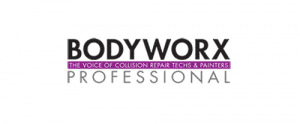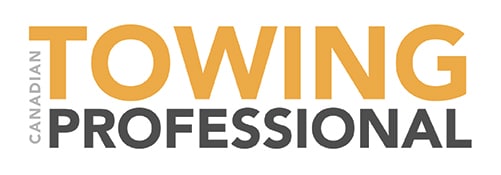Pricing expert at Pricefx says the war and economic sanctions are disrupting the way the world prices and purchases nearly everything as product supply chains tighten
CHICAGO–(BUSINESS WIRE)–#chemicals–The global economy, and Europe in particular, is feeling the impact of product shortages due to the conflict between Russia and Ukraine. Key chemicals that permeate the global product supply chain are sourced in these two countries. Pricefx, the global leader in cloud-native pricing software, urges businesses to consider advanced pricing strategies to sustain good customer relationships, respond to increasing cost pressures, and maintain margins during this time of extreme volatility.
Chemical and product shortages are impacting everyday items such as tires, catalytic converters and breakfast cereal. Here are some specific examples of chemical shortages the world is currently facing:
Carbon black
Carbon black is used in batteries, wires and cables, toner and printing inks, rubber goods, and especially in automotive tires. It improves the strength, performance, and ultimately the durability and safety of tires. Approximately 30% of European carbon black comes from Russia and Belarus or Ukraine. Currently, these sources are largely off limits. Alternative sources in India are sold out and the cost of sourcing from China is double that of Russia given the transportation cost increase.
Consumers can expect to see higher prices for tires due to these increased costs, as well as difficulty purchasing specific types of tires as they will be in short supply. Tire manufacturers should review their supply chain and contracts to understand their risk exposure, the value of supply certainty and how much they are willing to pay for this value attribute.
Platinum, Rhodium, and Palladium
These three commodities are utilized in a large variety of industrial applications, but are critical to the automotive industry. All three metals are utilized to manufacture catalytic converters, which help to reduce the toxic emissions created by gas powered automobiles. Approximately 40% of the world’s palladium comes from Russia. As sanctions and boycotts have expanded, prices have risen to all-time highs. The scrap value or resale value of a catalytic converter has increased such that individual cars, trucks, and buses are now targeted by organized crime organizations.
Businesses need to be aware of gray market pricing, where products are legally or illegally procured in one country or region and sold in another. This practice allows companies to utilize a kind of arbitrage on cost and price that negatively impacts the manufacturer.
Manufacturers need to have systems to detect and address gray market pricing that occurs because of large differences between regional pricing which is further amplified by commodity shortages and price spikes. It is also important to consider price ladders to maintain proper relationships between new and remanufactured or other similar product hierarchies. These relationships, if not managed in lock-step, can create margin compression where relationships are not well maintained.
Natural Gas and Ammonia
Fertilizer is required for crops around the world. The ammonia in fertilizer is most commonly made by combining nitrogen in the air and hydrogen from natural gas. About 40% of the natural gas and 25% nitrogen, potash, and phosphates in Europe comes from Russia; nearly half of global ammonium nitrate comes from Russia. To make matters worse, China has limited exports, including fertilizer, in favor of addressing domestic demand. Farmers are considering rotating to crops that require less fertilizer, however grain shortages are driving up the cost of basic foods.
Russia and Ukraine together make up about 25% of global wheat production. Ukraine is a major producer of sunflower seed oil, cereals, and is the fifth largest global grain producer. The combined impact of fertilizer product, grain and seed oil production is significant to the global economy.
Due to quickly rising costs, consumers can expect to see higher food prices. Food manufacturers will often employ “shrinkflation” to combat rising costs by reducing the quantity of product in a package. This can commonly be seen in breakfast cereal, where a 700g box is now a 650g box.
“After the global pandemic began in 2020, businesses learned that they needed to prepare for supply chain shortages but were likely caught off guard by the unexpected disruption caused by the Russia-Ukraine war,” said Garth Hoff, chemical industry pricing expert at Pricefx. “These ‘black swan’ events are occurring with increasing regularity and impacting consumers in ways they aren’t expecting – like the size of their cereal box. Businesses, particularly mult-national companies, are being forced to once again adapt to massive disruption and need to reexamine their data, shift pricing algorithms, and look for ways to survive and thrive in 2022’s already challenging environment.”
Follow Pricefx
LinkedIn: https://www.linkedin.com/company/price-f-x-/
Twitter: https://twitter.com/price_fx
About Pricefx
Pricefx is the global leader in SaaS pricing software, offering a comprehensive suite of solutions that are fast to implement, flexible to configure and customize, and friendly to learn and use. Based on cloud-native architecture, Pricefx delivers a complete price optimization and management platform that provides the industry’s fastest time-to-value and lowest total cost of ownership. Its innovative solution works for B2B and B2C enterprises of any size, in any industry, in any part of the world. Pricefx’s business model is entirely based on the satisfaction and loyalty of its customers. For enterprises facing pricing challenges, Pricefx is the cloud pricing optimization, management, and CPQ platform to dynamically Plan, Price and Profit.
For more information, please visit www.pricefx.com.
Contacts
Media:
Cathy Summers
Summers PR for Pricefx
cathy@summers-pr.com
+1 (415) 483-0480



















